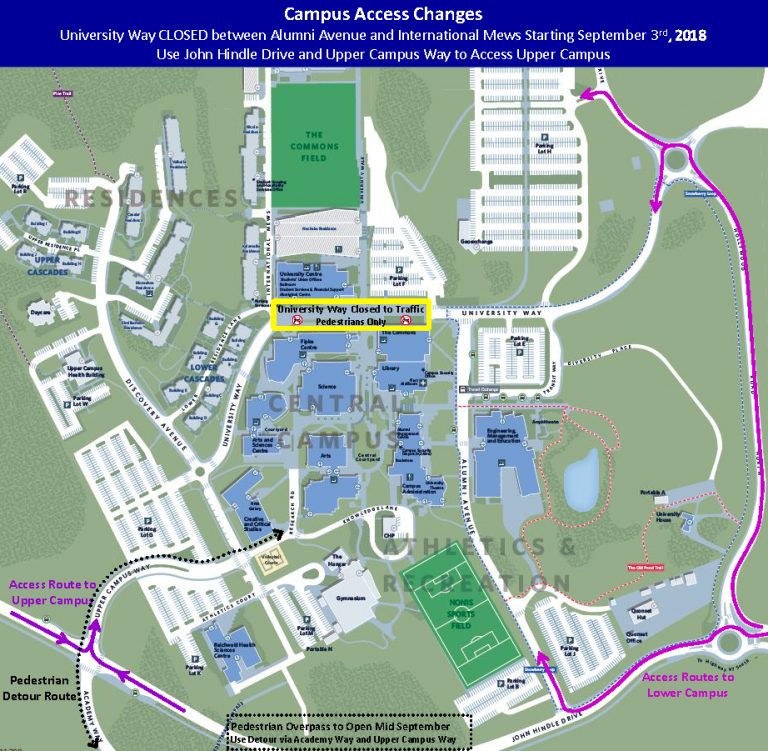The Board of Governors has approved UBC’s 2019/20 budget, setting spending priorities for the year ahead, to advance the university’s strategic plan: Shaping UBC’s Next Century.
Key investment areas include recruitment and retention of students, faculty and staff; as well as teaching, learning and research infrastructure and support. Under those broad themes, this year’s budget sees investments in areas such as student mental health, student financial aid, research support, and local and global engagement.
The final budget is the result of a consultation process led by Deborah Buszard, Deputy Vice-Chancellor and Principal, UBC Okanagan; Andrew Szeri, Provost and Vice-President, Academic, UBC Vancouver; and Peter Smailes, Vice-President, Finance and Operations.
The process began in October 2018 and included student leaders, both senates, senior staff, academic heads and directors, associate deans, and deans. Each Faculty and Administrative Unit undertook a budget review and, through that process, was asked to submit its priorities for the year ahead. These requests were then assessed by academic and administrative leadership on each campus against UBC’s strategic plan to determine the strongest areas of alignment with the priorities for 2019/20 and beyond.
For UBC Okanagan, recognizing the continued growth of the campus student body and development of research programs, the focus remains on making investments to position UBCO for the future.
Deborah Buszard explains: “We are making commitments to increase student support, including the Disability Resource Centre, the Equity Office, Sexual Violence Prevention and Response Office and Aboriginal Graduate Fellowships, as well as significant increases to financial aid.
“As part of our system-wide initiatives we are also making investments in Advanced Research Computing, as well as continuing to support research clusters through the Okanagan Excellence fund and a much needed greenhouse. Recognising the increasing demands on our campus services, we are investing in our administrative services to support the rapidly evolving needs of our students, faculty and staff.”
Ananya Mukherjee-Reed, Provost and Vice-President Academic, UBC Okanagan, adds: “Transformative learning and student success are the focus of our investments this year, including additional funding to support our international students and on-campus employment opportunities for students to promote experiential learning.”
UBC’s $2.2 billion operating budget is funded by provincial grants ($657 million), tuition ($754 million), land proceeds ($33 million), revenue directly earned by faculties ($181 million), and a combination of business, operational, investment revenue and a contribution from philanthropic gifts ($571 million). These revenues support UBC’s faculty teaching and research, services, ancillary operations, and the Excellence fund.
The next two years will see UBC focussing on six key areas within the strategic plan: Strategy 17, Indigenous Engagement; Strategy 1, Great People; Strategy 3, Thriving Communities; Strategy 7, Research Support; Strategy 11, Education Renewal; and Strategy 14, Interdisciplinary Education.
“If you took a look at the proposals that came in to us, they were all worthy of support,” says Andrew Szeri. “Now that we have the new university strategic plan, we were able to use those priorities to focus our funding decisions in a coordinated way, to support what is collectively most important for the institution.”
In addition to reflecting the priorities gleaned through the consultation, the budget must also have the flexibility to respond to existing and emerging issues, both globally and unique to UBC.
One such challenge is the recruitment and retention of students, faculty and staff. This is especially important given the high cost of living in Metro Vancouver, and the challenges of employment within the Okanagan for families of UBC’s faculty and staff.
Countering that challenge requires enhancing infrastructure to attract research talent, and continually building on UBC’s commitment to add a further 2,300 student beds at the Vancouver campus, and an additional 440 student beds at the Okanagan campus.
There is also the need to offer salaries that are competitive, within the Public Sector Employers’ Council mandate from the Province of British Columbia. Salaries to attract and retain the high calibre of faculty and staff continue to be the single largest fixed cost, at a total of $1.35 billion. Additional financial pressures include replacement of UBC’s finance, human resource and student administrative systems through the Integrated Renewal Program and deferred maintenance costs for buildings.
Looking ahead, UBC will be paying close attention to the inflation of internal costs and demographic shifts, which show a gradual decline in the numbers of traditional direct-entry domestic students and increasing demands for lifelong learning.
Andrew Szeri continues: “That is a trend that many universities around the world are looking to mitigate. We are exploring how UBC can continue to be the number one choice for top students, both locally and internationally, and how future budgets will need to support that goal.”
Peter Smailes adds: “Budget planning is a big responsibility that we take very seriously. Everyone works diligently to get the balance right of respecting the hard work it takes for students (and their families) to gain admission; with the work of faculty in advancing research and teaching; and the role of staff in innovating service delivery across all areas.”
To learn more, read UBC’s 2019/20 Budget report.
 Aaron will be leading and managing the Infrastructure Development team for of the campus. This includes overseeing the planning, design, construction, renewal and renovation of all campus facilities and physical infrastructure, encompassing administrative and academic institutional facilities, Student Housing and Athletics.
Aaron will be leading and managing the Infrastructure Development team for of the campus. This includes overseeing the planning, design, construction, renewal and renovation of all campus facilities and physical infrastructure, encompassing administrative and academic institutional facilities, Student Housing and Athletics.